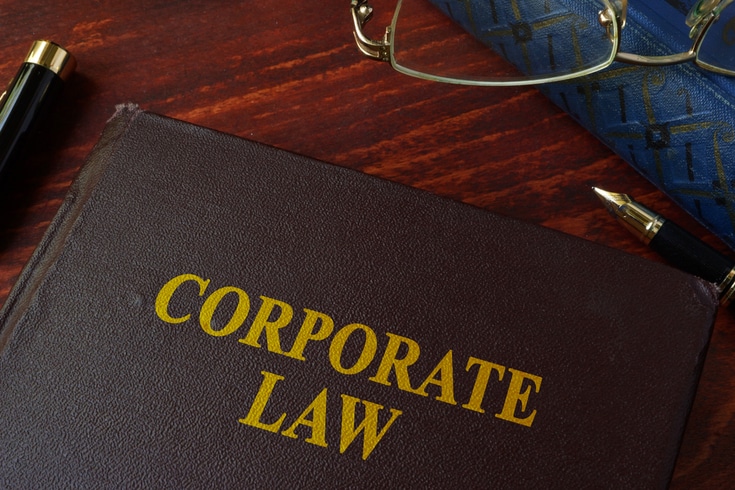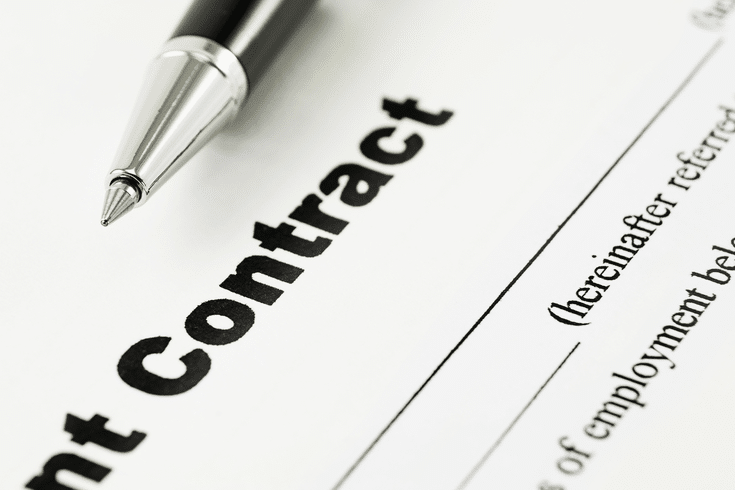Outside Director Liability Limitation Agreement in Japan: Understanding, Procedures, and Drafting Considerations

Recently in Japan, as corporate scandals have become increasingly prevalent, there is a growing recognition of the need for robust supervision by the board of directors over management teams.
With the enforcement of the revised Companies Act on March 1, 2021, listed companies in Japan are now required to appoint outside directors. The appointment of outside directors has become a critical issue not only for listed companies but also for companies planning to go public in the future.
Moreover, even unlisted companies seeking investment from venture capital firms may be required to include outside directors in their governance structure. In such cases, it is common for the company and the outside director to enter into a Liability Limitation Agreement before the director assumes their role.
In this article, we provide a comprehensive explanation of the concept of an Outside Director Liability Limitation Agreement, as well as the necessary procedures for concluding such an agreement in Japan. We delve into the intricacies of the agreement, including its purpose, scope, and key considerations during the drafting process.
By understanding the nuances of the Outside Director Liability Limitation Agreement and following the appropriate procedures, companies can effectively manage potential liabilities and establish a solid framework for collaboration with outside directors. Our aim is to equip businesses with the knowledge and insights necessary to navigate the legal landscape surrounding this important aspect of corporate governance in Japan.
Liability Limitation Agreements for Outside Directors: Understanding and Applicability

With the growing presence of outside directors, the adoption of liability limitation contracts is on the rise.
According to the Tokyo Stock Exchange’s “White Paper on Corporate Governance of TSE Listed Companies 2015” (p. 36), approximately 78.6% of outside directors have entered into limited liability agreements with their respective companies as of 2014. This statistic highlights the increasing prevalence of liability limitation agreements in practical scenarios.
In this article, we aim to provide a comprehensive understanding of what a limited liability agreement entails and which directors are eligible to enter into such agreements. By delving into the essence of limited liability agreements, we shed light on their purpose and applicability in various corporate settings.
By familiarizing oneself with the concept of liability limitation agreements and their specific scope of application, companies and directors can navigate the legal landscape more effectively, ensuring a solid foundation for corporate governance.
What is a Director Liability Limitation Agreement?
A director liability limitation agreement is a contractual arrangement that restricts the extent of liability a director may face in the event they are held responsible for damages.
Such agreements are typically entered into before any actual liability arises, often at the time of a director’s appointment. They serve as a proactive measure to address potential liability issues.
While there are existing systems that allow for exemption from liability through resolutions passed by the general meeting of shareholders or the board of directors, the effectiveness and extent of these exemptions may be uncertain. Therefore, those who will become outside directors could not shake off the fear of being held liable for a high amount of compensation.
In contrast, a liability limitation agreement provides clarity and certainty by establishing predetermined limits on liability before any damages occur. By reducing the risk of substantial liability, liability limitation agreements can facilitate the recruitment of outside directors who may otherwise be deterred by the potential for significant financial burdens. This is one of the reasons why the prevalence of limited liability agreements for outside directors is increasing.
It is important to note, however, that the maximum liability amount in a liability limitation agreement is not arbitrarily determined. According to the Companies Act, the upper limit is determined by the higher of two amounts: the amount specified in the company’s Articles of Incorporation or the minimum liability amount stipulated by law (Article 425, Paragraph 1 of the Companies Act).
For outside directors specifically, the minimum limit of liability is set at twice the “compensation” as defined in Article 113 of the Enforcement Regulations of the Companies Act in Japan.
Executive Directors are Exempt from Liability Limitation
Under Japanese law, only non-executive directors are eligible to enter into limited liability agreements with companies. This means that executive directors, including representative directors and directors selected by board resolutions to execute business, are not permitted to enter into liability limitation agreements.
While outside directors, who are appointed from among directors other than executive directors, can enter into liability limitation agreements without issues, caution must be exercised if an outside director assumes an executive director role. Note that in such cases, the effectiveness of the liability limitation agreement will be lost (Article 427, Paragraph 2 of the Companies Act).
Procedures for Concluding Liability Limitation Agreements

When entering into a liability limitation agreement, it is important to not only execute the agreement itself but also fulfill the procedural requirements stipulated by the Companies Act in advance. In this section, we will outline the necessary procedures to be undertaken prior to concluding a liability limitation contract.
Preparation of Articles of Incorporation Allowing for Liability Limitation Agreements
In Japan, in order to enter into a liability limitation agreement, it is necessary for the company’s articles of incorporation to include provisions allowing for the conclusion of such agreements. Consequently, an amendment will be made to the articles of incorporation to incorporate the provision for the execution of liability limitation agreements.
Determining Whether to Specify the Maximum Liability Amount in the Articles of Incorporation
When entering into a limited liability agreement, the maximum liability amount is determined by either the amount stated in the Articles of Incorporation or the minimum liability amount prescribed by law, whichever is higher. Therefore, it would be meaningless to set the maximum liability amount lower than the minimum liability amount in the Articles of Incorporation.
In cases where a higher maximum liability amount is desired than the statutory minimum, it becomes meaningful to specify the maximum liability amount in the articles of incorporation. The decision to include the liability limit in the articles of incorporation is left to the discretion of the company.
Whether or not the maximum liability amount is actually specified in the articles of incorporation can vary from company to company. From the perspective of shareholders who seek liability of officers, it may be preferable to set a higher maximum liability amount in the articles of incorporation than the minimum liability amount stated in Article 425, Paragraph 1 of the Companies Act.
On the other hand, when accepting an outside director from an investor, although the sender of the director is a shareholder, it may be more desirable to have a lower upper limit of liability.
Examples of Provisions when the Maximum Liability Amount is Specified in the Articles of Incorporation
If the maximum liability amount is specified in the articles of incorporation, the following provisions may be considered:
Article XX (Limitation of Liability Agreement with Directors)
Pursuant to the provisions of Article 427, Paragraph 1 of the Companies Act, the Company enters into agreements with directors (excluding those who are executive directors, etc.) to limit their liability for damages under Article 423, Paragraph 1 of the Companies Act. can be concluded. However, the maximum amount of liability for damages based on the contract shall be a predetermined amount of XX yen or more or the minimum liability amount stipulated by laws and regulations, whichever is higher.
Please note that the above provision is just an example and should be reviewed and customized based on the specific requirements and circumstances of the company.
Examples of provisions where the maximum amount of liability is not stipulated in the articles of incorporation
If the maximum amount of liability is not specified in the Articles of Incorporation, the following provisions may be established.
Article XX (Limitation of Liability Contract with Directors)
Pursuant to the provisions of Article 427, Paragraph 1 of the Companies Act, the Company enters into agreements with directors (excluding those who are executive directors, etc.) to limit their liability for damages under Article 423, Paragraph 1 of the Companies Act. can be concluded. However, the maximum amount of liability for damages under the contract shall be the minimum liability amount stipulated by laws and regulations.
Consent of Auditors in Amendments to Articles of Incorporation
In Japan, when amending the Articles of Incorporation to include provisions for limited liability agreements, the approval of the General Meeting of Shareholders is required.
For companies with auditors, it is important to note that the consent of all auditors must be obtained in advance when proposing amendments to the articles of incorporation at the general meeting of shareholders. This requirement is outlined in Article 427, Paragraph 3 of the Companies Act, specifically Article 425, Paragraph 3, Item 1. It is worth mentioning that even for companies with a board of corporate auditors, the approval of the board of corporate auditors is not necessary for the submission of this proposal.
Obtaining the consent of all auditors ensures compliance with the Companies Act and facilitates a smooth process for amending the articles of incorporation.
Approval Process for Amending Articles of Incorporation: Special Resolution of General Meeting of Shareholders
In Japan, the process for amending the Articles of Incorporation requires the approval of a special resolution at the General Meeting of Shareholders.
To initiate this process, consent from the corporate auditors must first be obtained for the proposed amendment to the articles of incorporation. Once obtained, the proposal can be presented to the General Meeting of Shareholders for approval.
Approval by a special resolution is necessary, as stated in Articles 466 and 309, Paragraph 2, Item 11 of the Companies Act. In general, a special resolution requires the presence of shareholders holding a majority of the voting rights exercisable at the meeting, and the approval of two-thirds or more of the voting rights of the attending shareholders.
Given that amendments to the articles of incorporation involve significant changes to the company’s foundation, the requirement of two-thirds approval from the voting rights of the attending shareholders ensures careful consideration and decision-making.
By adhering to this approval process, companies can ensure the legality and validity of the amendments made to their articles of incorporation.
Registration Process for Amendments to Articles of Incorporation
In Japan, when amendments to the articles of incorporation are made, specifically regarding the provisions related to liability limitation contracts, it is required to register these changes.
Once the amendment to the articles of incorporation is approved by a resolution at a general meeting of shareholders and provisions regarding liability limitation contracts are established, the registration of this provision must be completed. This registration falls under the jurisdiction of Article 911, Paragraph 3, Item 25 of the Companies Act.
The registration process must be initiated within two weeks after the amendment to the articles of incorporation becomes effective, as stated in Article 915, Paragraph 1 of the Companies Act. It is essential to complete the registration within this timeframe to ensure compliance with legal requirements.
By following the necessary registration procedures, companies can ensure the proper documentation and official recognition of the amendments made to their articles of incorporation. This registration process adds a layer of transparency and legality to the establishment of liability limitation contracts.
Important Considerations when Drafting a Liability Limitation Agreement

When drafting a liability limitation agreement with outside directors, it is crucial to ensure alignment with the provisions of the Articles of Incorporation, particularly regarding the limits of liability. The following points should be taken into account (with Party A referring to the company and Party B referring to the outside director):
Article XX (Limitation of Liability for Compensation)
In the event that Party B, as a director of Party A, causes damage to Party A due to negligence in the performance of their duties, Party A shall hold Party B liable for damages up to the higher amount between the predetermined limit stated in Party A’s Articles of Incorporation or the minimum liability amount specified in Article 425 of the Companies Act. Party A shall release Party B from liability for any portion of damages exceeding that amount, provided that Party B has acted in good faith and without gross negligence in the performance of their duties.
Furthermore, it may be appropriate to include provisions stipulating that this agreement remains applicable to the director’s actions during the contract term, even after the expiration of the limited liability contract. Additionally, provisions related to any restrictions outlined in the Companies Act could also be considered.
By incorporating these important elements into the liability limitation agreement, both parties can establish clear expectations and safeguards regarding liability, ensuring a mutually beneficial arrangement while complying with legal requirements.
Strategies for Minimizing Liability of Directors in Business Operations

In Japan, it is important to note that executive directors, including representative directors, are unable to enter into liability limitation agreements similar to outside directors. However, there are other methods available to reduce their liability, as outlined below:
Special Resolution of the General Meeting of Shareholders: By obtaining a special resolution of the general meeting of shareholders, executive directors’ liability can be reduced to the statutory minimum liability amount prescribed in Article 425, Paragraph 1 of the Companies Act.
Resolution of the Board of Directors: The liability of executive directors can also be reduced up to the statutory minimum liability amount through a resolution of the Board of Directors, as stated in Article 426, Paragraph 1 of the Companies Act. To implement this approach, it is necessary to include provisions in the articles of incorporation explicitly allowing for liability reduction by board resolution.
Exemption by Consent of Shareholders: With the unanimous consent of all shareholders, directors’ liability can be entirely exempted, as per Article 424 of the Companies Act. This requires the consent of all shareholders and should be approached cautiously.
By utilizing these strategies, companies can effectively mitigate the liability of executive directors, ensuring a more secure business environment. It is advisable to consult legal professionals to ensure compliance with relevant laws and regulations during the implementation of these measures.
Importance of Legal Consultation for Drafting a Limited Liability Agreement
As the adoption of outside directors becomes more prevalent in companies, the use of limited liability agreements has become common practice to facilitate the recruitment of such directors. However, there are several crucial factors that need to be carefully considered before entering into a limited liability contract.
These include the necessity of stipulating the provisions in the articles of incorporation, understanding the limitations and requirements for directors, and ensuring compliance with the prescribed procedures under the Companies Act.
Failure to adhere to these procedures may lead to potential invalidation of the agreement. Therefore, it is highly recommended to seek the guidance and expertise of a lawyer well-versed in corporate legal matters when contemplating a limited liability agreement with an outside director.
By consulting with a lawyer experienced in this field, companies can ensure the proper execution of the agreement and mitigate any legal risks or uncertainties that may arise during the process.
Proper legal consultation will provide companies with the necessary insights and guidance to navigate the complexities of drafting a comprehensive and legally sound limited liability agreement.
Comprehensive Contract Review and Preparation Services for Companies
Our office specializes in providing comprehensive contract review and preparation services for a wide range of companies, including those listed on the Tokyo Stock Exchange Prime and venture companies. With our extensive experience and expertise in contract law, we are well-equipped to handle various types of contracts to meet our clients’ specific needs and objectives.
Our services encompass the entire contract lifecycle, from initial review and analysis to drafting, negotiation, and finalization. We ensure that contracts are carefully tailored to protect our clients’ interests and minimize potential risks. Whether it’s a complex agreement involving multiple parties or a straightforward contractual arrangement, we approach each project with meticulous attention to detail and a deep understanding of legal intricacies.
Our team of skilled attorneys combines legal knowledge with industry-specific insights to provide guidance on contract terms, obligations, rights, and potential issues that may arise. We take the time to understand our clients’ business objectives and tailor contracts accordingly, ensuring compliance with relevant laws and regulations.
By entrusting us with your contract-related matters, you can have peace of mind knowing that your agreements are professionally reviewed, optimized, and aligned with your strategic goals. Our commitment is to provide reliable and comprehensive support to safeguard your company’s interests and facilitate successful business transactions.





















